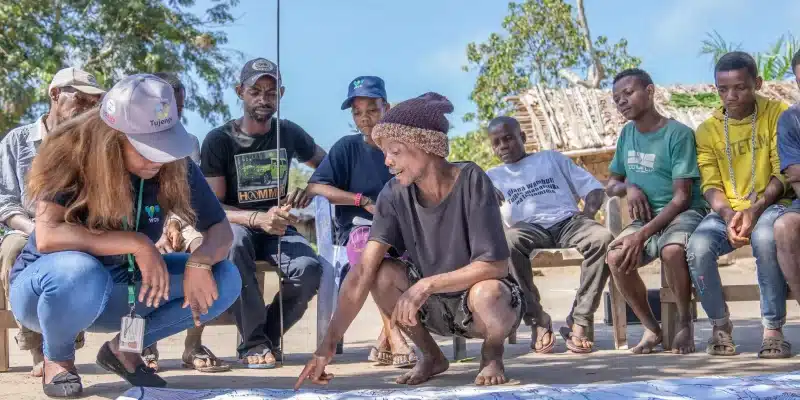In the Democratic Republic of Congo (DRC), a dozen associations are implementing the "Tujenge" project to enable the people of the town of Béni to recover from the armed and climatic attacks that are jeopardising their development and the surrounding natural sites.
The town of Béni has been at the heart of the armed conflicts affecting the east of the Democratic Republic of Congo (DRC) since 2014. Faced with the massacres regularly perpetrated by armed rebels who take advantage of the situation to attack local biodiversity (looting protected areas, murdering ecoguards), a consortium of non-governmental organisations (NGOs) is implementing the “Tujenge” (in Swahili) project, which means “let’s build” in French.
The idea is to strengthen the economic and climatic resilience of local residents, while at the same time protecting the potential of the natural environments surrounding Béni. These include the Virunga National Park in North Kivu province and the Okapi Wildlife Reserve (RFO), which are home to a diversity of animal species (giraffes, elephants, hippopotamus) and plant species (2,077 endemic plant families).
For five years, Mercy Corps, the Wildlife Conservation Society (WCS), Solidarité des femmes pour la paix et le développement (SOFEPADI) and other nature and human rights associations will be working to limit people’s exposure to the hot desert climate. They will also provide them with ecological solar-powered ovens to reduce the amount of wood cut from the forests used to cook food.
Read also-
Similar initiatives are underway in other DR Congolese towns. This is the case of the “fostering resilience” project launched in the mining provinces of Ituri and Tshopo (north-east), Lualaba and Haut Katanga (south-east). According to the Swedish government, which is funding the project to the tune of $7.6 million, the aim is to strengthen the capacity of local communities to restore and preserve their ecosystems and livelihoods by promoting local know-how and developing income-generating activities that respect the environment.
Benoit-Ivan Wansi






